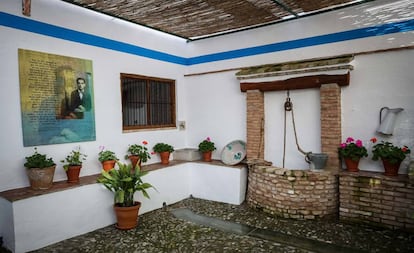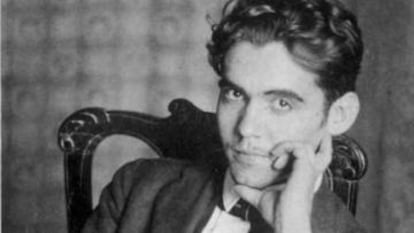House that inspired one of Lorca’s most famous works opened to public
When he was a child, the poet and playwright would eavesdrop on the home of Frasquita Alba, providing the inspiration for what would become ’The House of Bernarda Alba’


The dark reality behind the play The House of Bernarda Alba haunted Federico García Lorca for years before he turned it into literature. It was a story that the poet had stumbled upon during his youth and was to turn into one of Spanish literature’s most memorable works years later.
In fact, it wasn’t until Lorca was asked by actress Margarita Xirgú to write the role of someone wicked for her that he turned the memory of Frasquita Alba and her daughters into a masterpiece.
She was an old widow who exercised an inexorable and tyrannical control over her single daughters
The House of Bernarda Alba tells the story of Frasquita Alba, her daughters, her servants and José Benavides – known as Pepe, the Roman, in the play – who is married to one of the daughters and marries another years later.
The story takes place at the start of the 20th century in the town of Asquerosa in the Granada region, which is now known as Valderrubio. Lorca went to live there as an eight year old in 1906 and stayed until 1907. Subsequently, he would spend a number of summers there with his aunt, Matilde, whose home was separated by a thick wall from the home of Frasquita Alba.

As the writer would tell a friend, she was “an old widow who exercised an inexorable and tyrannical control over her single daughters. They were private obedient prisoners. I never talked to them, but I saw them go by like shadows, always in silence and always dressed in black.”
That house, the one belonging to the real-life Frasquita, has now been restored and opened to the public, becoming the latest on the list of Lorca locations in Granada province.
The play is based on the conversations that Lorca eavesdropped on in a bid to understand why the Albas lived in a “dumb, cold world under an African sun, a tomb of living people under the inflexible splint of a dark three-headed dog,” as he would describe the situation to his friend Carlos Morla Lynch.
Central to Lorca’s espionage was the well that the Albas shared with Aunt Matilde. It was a well without water, according to the poet, and he would go down it when he was young as the conversations held on the other side of the wall were audible from there. “To spy on this strange family whose mysterious problems fascinated me,” he would explain.
Now containing water, this well forms part of the new Lorca center in Valdrerrubio, which was inaugurated by the Andalusian regional premier in the presence of the poet’s great niece, who was thrilled by the event.
Paco Reina, a Valderrubio writer and a Lorca specialist, explains that while the town was not a place with much that could satisfy Lorca’s hunger for culture, his cousin Isabel would try to meet his needs by teaching him to play the guitar. And it was during these visits that he would pursue his interest in the neighbors. What he heard down the well must have made quite an impact because he still remembered it 20 years later. When he wrote the play in 1935, Frasquita Bernarda Alba had been dead for more than 10 years.
What he heard down the well must have made quite an impact because he still remembered it 20 years later
The play was written between the time of his conversation with the actress Xirgú, which took place in December 1935, and the poet’s death in August the following year – the text had been finished at least several weeks earlier.
Of course, Lorca never got to see the play performed. Xirgú opened it in 1945 in Buenos Aires to great acclaim, but with unfortunate consequences, opening up a rift between the two families. The granddaughter of Frasquita and the daughter of José Benavides sued the poet’s heirs – without success – and demanded that the play be withdrawn from theaters and bookshops. It was years before the play was to be performed in Spain.
English version by Heather Galloway.
Tu suscripción se está usando en otro dispositivo
¿Quieres añadir otro usuario a tu suscripción?
Si continúas leyendo en este dispositivo, no se podrá leer en el otro.
FlechaTu suscripción se está usando en otro dispositivo y solo puedes acceder a EL PAÍS desde un dispositivo a la vez.
Si quieres compartir tu cuenta, cambia tu suscripción a la modalidad Premium, así podrás añadir otro usuario. Cada uno accederá con su propia cuenta de email, lo que os permitirá personalizar vuestra experiencia en EL PAÍS.
¿Tienes una suscripción de empresa? Accede aquí para contratar más cuentas.
En el caso de no saber quién está usando tu cuenta, te recomendamos cambiar tu contraseña aquí.
Si decides continuar compartiendo tu cuenta, este mensaje se mostrará en tu dispositivo y en el de la otra persona que está usando tu cuenta de forma indefinida, afectando a tu experiencia de lectura. Puedes consultar aquí los términos y condiciones de la suscripción digital.








































